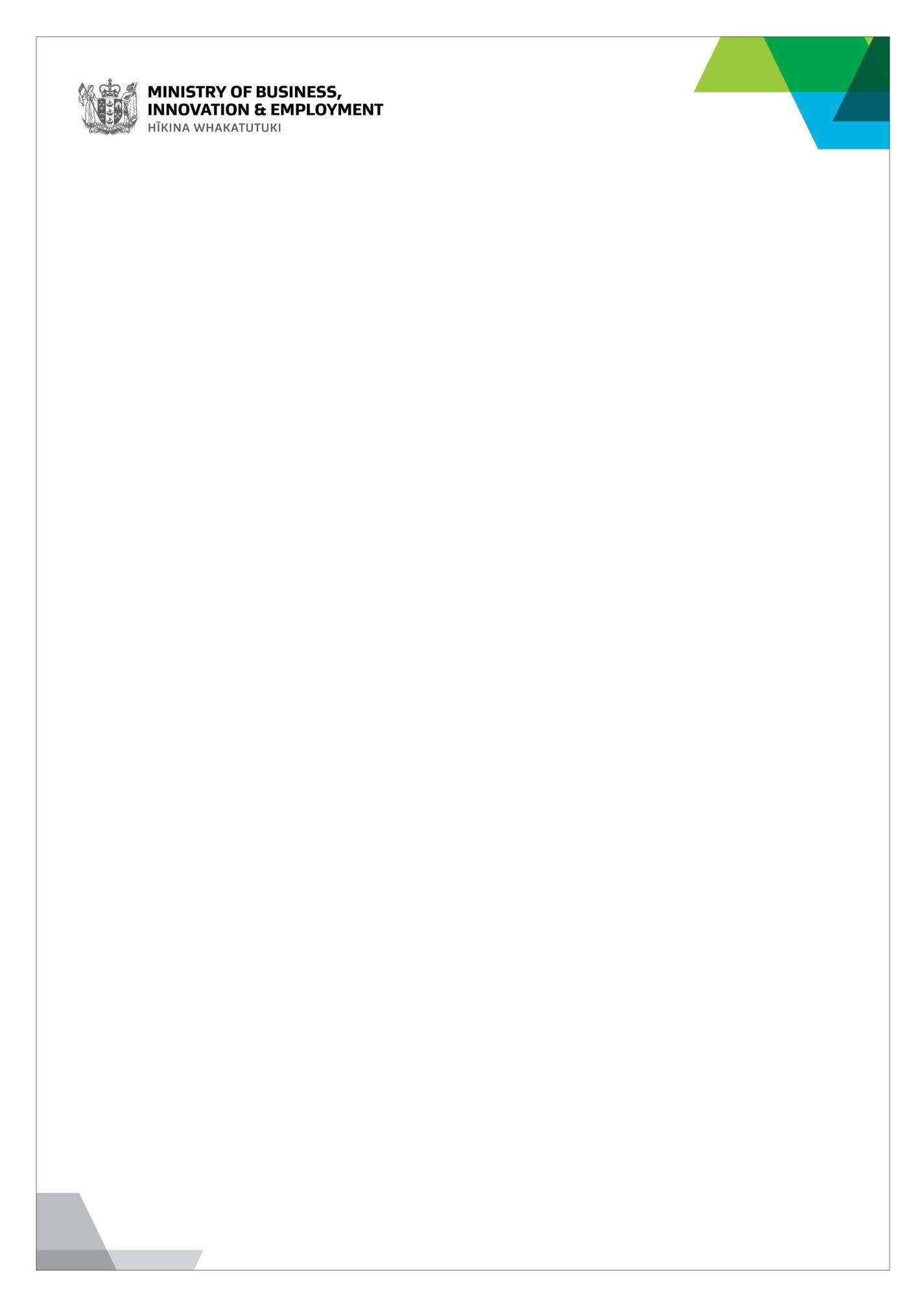
25 July 2022
Mr Ge
[FYI request #19641 email]
DOIA 2122-2309
Dear Mr Ge,
Thank you for your email of 11 June 2022 to the Ministry of Business, Innovation and Employment
requesting, under the Official Information Act 1982 (the Act), the following information:
Could you please release Immigration NZ's "Standard Operating Procedure"?
On 20 June 2022, you refined your request to:
I'm interested in the section(s) in SOPs on refugee related matters, ideally all the contents that
could range from selecting the quota all the way to granting residency.
Our Response
We have understood your request as referring to Immigration New Zealand’s (INZ) process in relation
to the assessment and decision-making in relation to quota refugees who could be resettled in New
Zealand. INZ does not have information on the end-to-end process in stand-alone SOP documents that
we can provide you. However, the information you have requested is summarised in this letter, with
links to further information, as a partial response to your request. This will be followed by the release of
a document that will be sent to you shortly.
The New Zealand Country Chapter of the United Nations High Commissioner for Refugees (UNHCR)
Resettlement Handbook provides a thorough overview of the resettlement process and can be found
at the following link:
www.unhcr.org/protection/resettlement/3c5e59d04/unhcr-resettlement-handbook-country-chapter-
new-zealand.html Further additional information is broadly outlined below.
Deciding the three-year and annual refugee quota
The Refugee Quota Programme (RQP) is decided by the New Zealand Government in three-year cycles.
The composition of the refugee quota is agreed to annually by the Minister of Immigration and the
Minister of Foreign Affairs.
1
• The UNCHR provides a submission based on the indications from the UNCHR’s Projected Global
Resettlement Needs and Priorities to the New Zealand Government to assist in the development
and delivery of New Zealand’s Refugee Quota Programme.
• Cases referred by UNHCR are located in four international regions of asylum (Africa, Americas,
Asia-Pacific and Middle East).
• Following receipt of the submission outlined above, a paper is drafted for Cabinet agreement to
the three-year quota programme. In addition, the Ministers of Immigration and Foreign Affairs
agree annually to the quota programme composition, which is developed following submissions
from the UNHCR.
The role of the UNHCR
• Refugees are determined to be refugees, and are screened and selected for resettlement by,
the UNHCR according to internationally accepted guidelines that take into account physical and
legal protection needs, as well as family reunification. Each of these needs are further
categorised for priority consideration (normal, urgent or emergency resettlement needs).
• Resettlement Registration Forms (RRFs) are prepared by the UNHCR and are submitted to the
RQP for consideration for resettlement in New Zealand in accordance with New Zealand’s
annual resettlement plan.
• Once the RQP receives submissions from the UNCHR for a caseload of refugees, it collaborates
with the regional UNHCR office to arrange off-shore interviews for individual cases, which are
either conducted in-person or via video conference where in-person interviewing is not possible.
The purpose of the interview is to gather all information necessary to assess each candidate for
selection.
Applying for permanent resident visas (mandated refugees)
• Refugee Quota Selection Officers considers each case against immigration instructions set by
the New Zealand Government, as well as the annual resettlement plan, which is signed-off by
the Minister of Immigration and the Minister of Foreign Affairs.
• A residence application for mandated refugees must be made (with supporting documentation)
and is then assessed as per the immigration instructions set out in the INZ Operational Manual:
https://www.immigration.govt.nz/opsmanual/#35439.htm
• All applications must be assessed against the following criteria:
• Identity
• Credibility
• Relationships
• Character (includes reputational risk)
• Risk
• Health; and
• Barriers to settlement.
• Refugees referred to New Zealand must meet specific residence criteria. Details on this process
can be found in the INZ Operational Manual here:
http://inzkit/publish/opsmanual/#46530.htm
2

• Follow-up interviews can be arranged if there is any missing information at the post-interview
stage. Verification of the application is carried out in accordance with the immigration
instructions and with reference to relevant guidance.
Granting of permanent residence
• The Refugee Quota Selection Officer finalises a Decision Summary, which must include
assessment of the applicant’s circumstances within each area of the Immigration Instructions.
• Where an application is granted, the respective UNHCR contacts must be advised regarding the
outcome of the decision.
• Where the relevant Immigration Instructions were not met, written reasons regarding why this
application was declined must be provided.
• Refugees whose applications are granted under the RQP will arrive in New Zealand with
permanent resident status.
Arrival in New Zealand
• Upon arrival, refugees are accommodated at Te Āhuru Mōwai o Aotearoa (the Māngere Refugee
Resettlement Centre). The centre is managed by INZ, which works in partnership with other
government agencies and non-government organisations (NGO) to run a comprehensive five-
week reception programme that prepares them to live and work in New Zealand. Health
assessments are undertaken offshore prior to arrival.
• After completing the reception programme, quota refugees are settled in one of the following
settlement locations across New Zealand: the Auckland region, Hamilton, Palmerston North,
Levin, Masterton, the Wellington region, Blenheim, Nelson, Dunedin, Timaru, Christchurch,
Ashburton and Invercargill.
You have the right to seek an investigation and review by the Ombudsman of this decision. Information
about how to make a complaint is available at
www.ombudsman.parliament.nz or freephone 0800 802
602.
If you wish to discuss any aspect of your request or this response, or if you require any further assistance,
please contac
t [email address]
Yours sincerely
Fiona Whiteridge
General Manager, Refugee and Migrant Services
Immigration New Zealand
3

